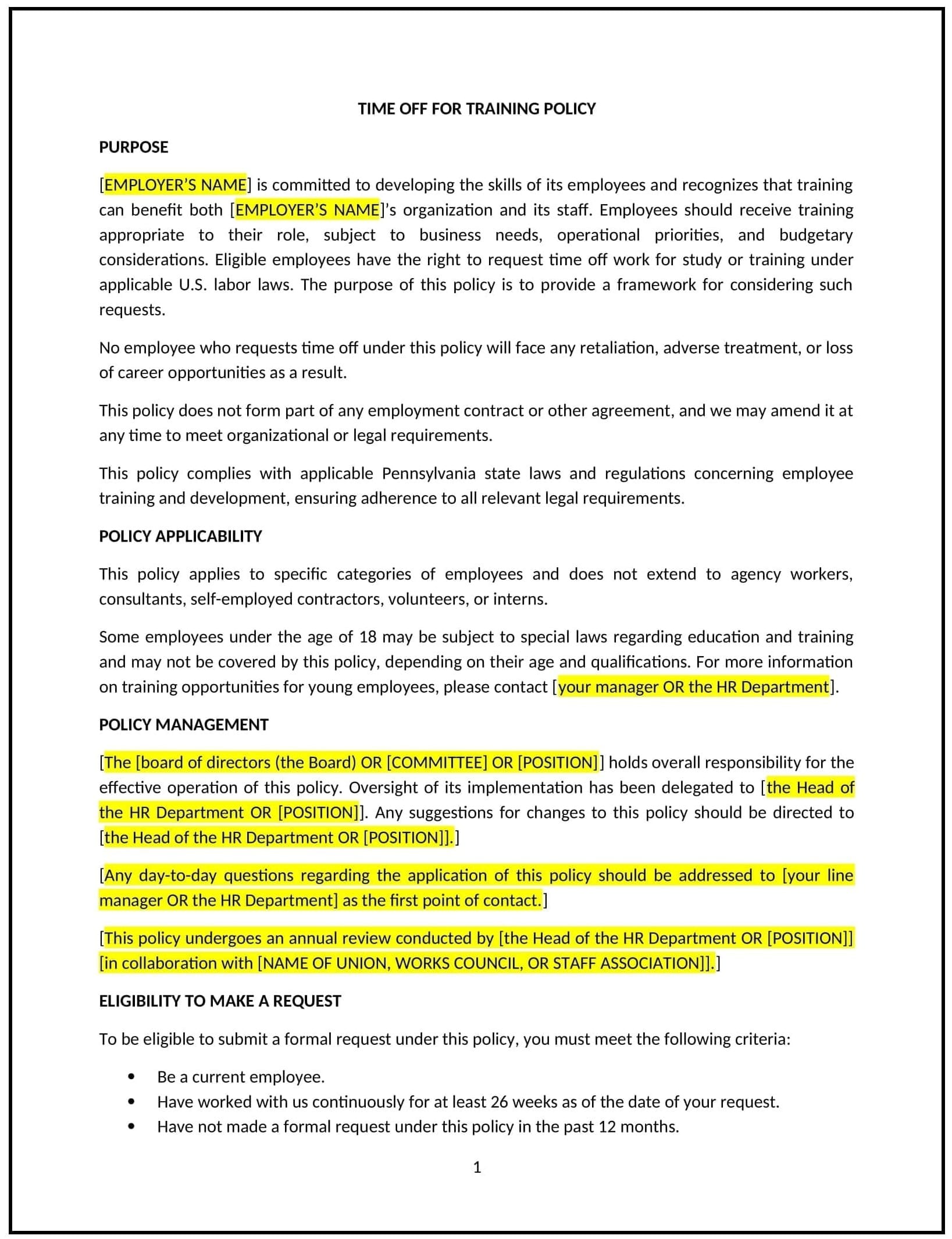Time off for training policy (Pennsylvania): Free templatea
Got contracts to review? While you're here for policies, let Cobrief make contract review effortless—start your free review now.

Customize this template for free
Time off for training policy (Pennsylvania)
This time off for training policy is designed to help businesses in Pennsylvania provide clear guidelines for granting employees time to attend training, workshops, or professional development programs. By addressing eligibility, approval processes, and expectations, this template ensures employees can enhance their skills while maintaining workplace productivity.
By using this template, businesses can foster employee growth, improve performance, and align with Pennsylvania-specific workforce needs.
How to use this time off for training policy (Pennsylvania)
- Define training eligibility: Clearly specify what types of training are covered under this policy, such as mandatory certifications, industry seminars, or skill enhancement programs.
- Include application procedures: Outline steps for employees to request time off for training, including timelines and required documentation.
- Address pay entitlements: State whether time off for training is paid, unpaid, or partially reimbursed, depending on the nature of the training and company policy.
- Establish expectations: Provide guidelines for employees to share their learning outcomes or apply new skills upon completing training.
- Reflect Pennsylvania-specific considerations: Tailor the policy to align with local workforce trends, industry standards, or training requirements relevant to Pennsylvania businesses.
Benefits of using a time off for training policy (Pennsylvania)
A well-structured time off for training policy supports employee development and organizational growth. Here's how it helps:
- Enhances employee skills: Encourages continuous learning and professional growth, leading to improved performance.
- Improves retention: Demonstrates the company’s investment in employee development, fostering loyalty and satisfaction.
- Supports compliance: Aligns with Pennsylvania-specific training requirements for certain industries or roles.
- Promotes fairness: Establishes consistent guidelines for approving and managing training leave requests.
- Reflects local needs: Addresses Pennsylvania workforce dynamics, such as industry certifications or regional labor market demands.
Tips for using a time off for training policy (Pennsylvania)
- Communicate the policy: Share the policy with employees during onboarding or performance reviews to highlight the organization’s commitment to training.
- Track participation: Maintain records of employee training to monitor progress and ensure accountability.
- Provide feedback opportunities: Encourage employees to share insights from training sessions and apply their knowledge in the workplace.
- Budget for training: Allocate resources to support employees’ professional development without disrupting operations.
- Review periodically: Update the policy to reflect changes in Pennsylvania labor laws, industry requirements, or business needs.